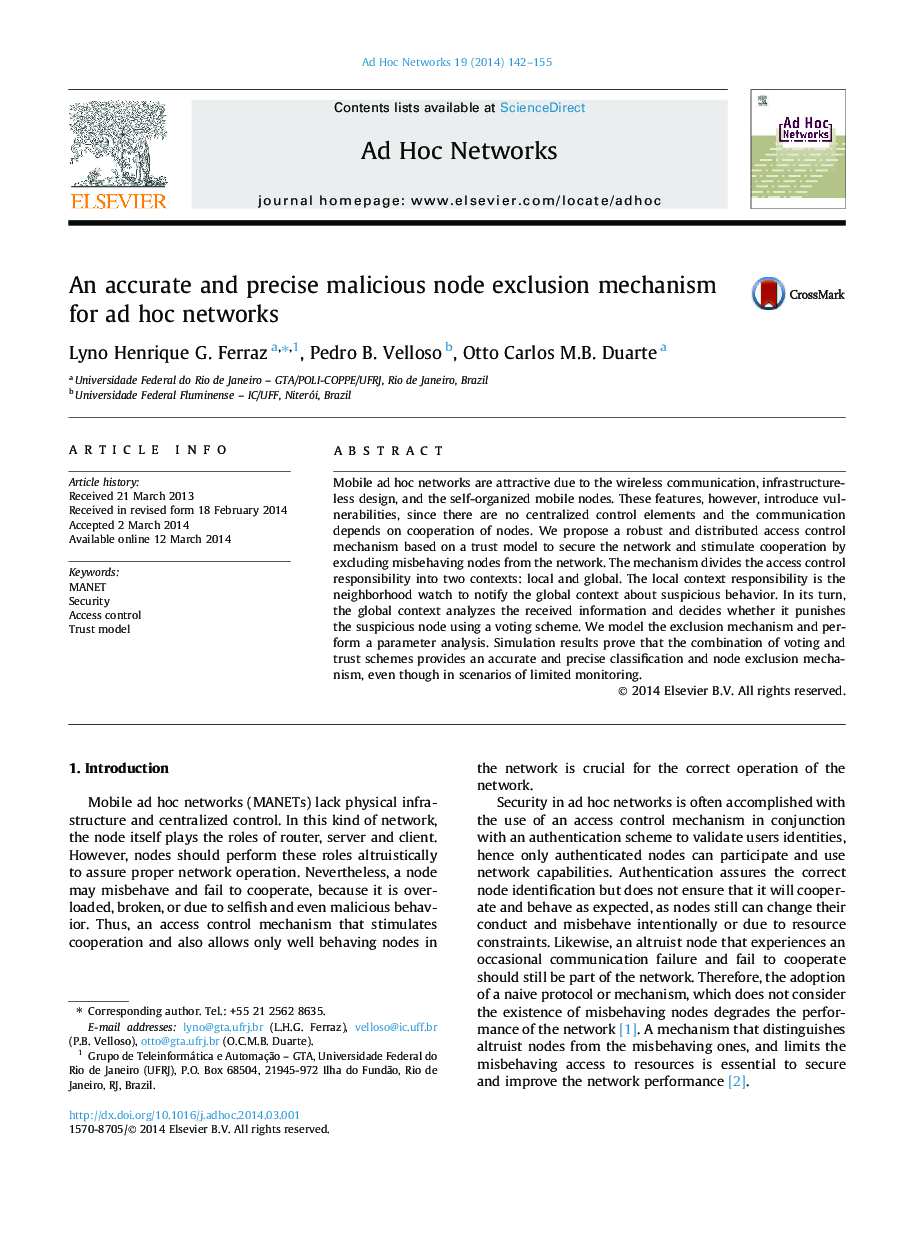| Article ID | Journal | Published Year | Pages | File Type |
|---|---|---|---|---|
| 444403 | Ad Hoc Networks | 2014 | 14 Pages |
Mobile ad hoc networks are attractive due to the wireless communication, infrastructure-less design, and the self-organized mobile nodes. These features, however, introduce vulnerabilities, since there are no centralized control elements and the communication depends on cooperation of nodes. We propose a robust and distributed access control mechanism based on a trust model to secure the network and stimulate cooperation by excluding misbehaving nodes from the network. The mechanism divides the access control responsibility into two contexts: local and global. The local context responsibility is the neighborhood watch to notify the global context about suspicious behavior. In its turn, the global context analyzes the received information and decides whether it punishes the suspicious node using a voting scheme. We model the exclusion mechanism and perform a parameter analysis. Simulation results prove that the combination of voting and trust schemes provides an accurate and precise classification and node exclusion mechanism, even though in scenarios of limited monitoring.
